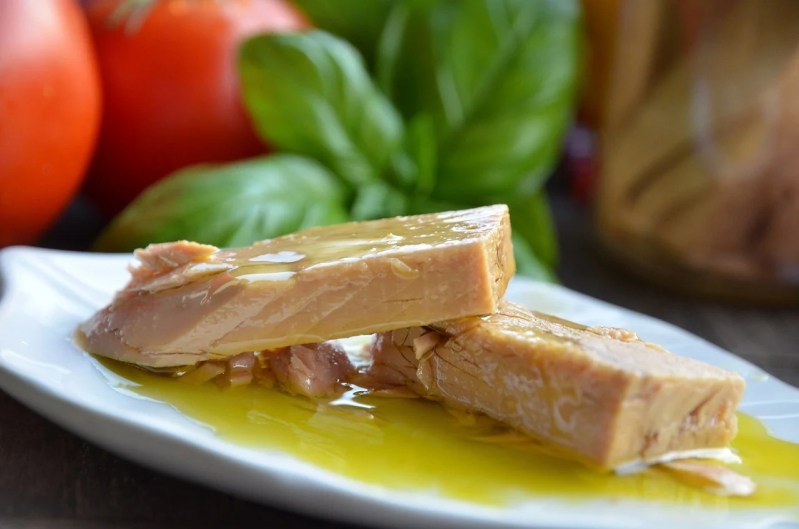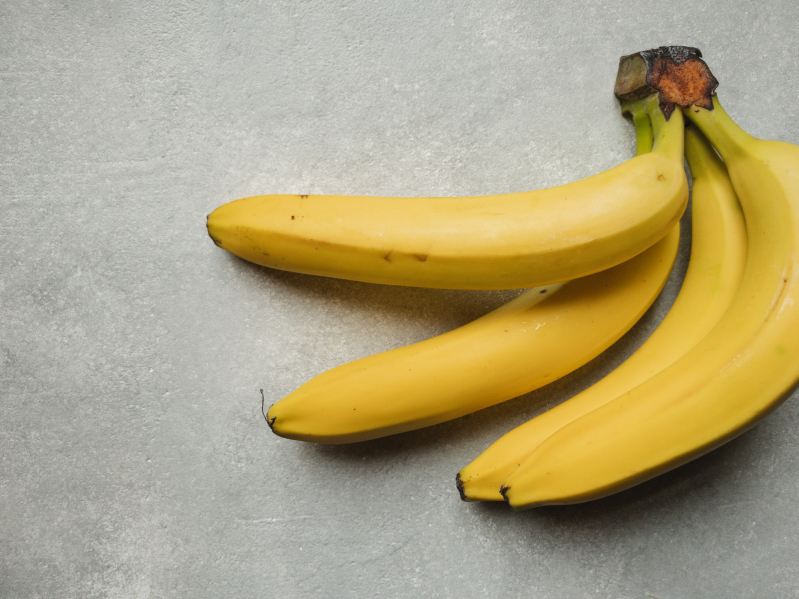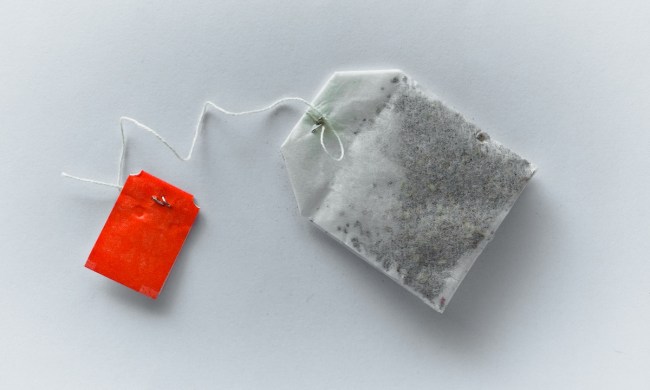
Magnesium is more than a fun-to-say word that sounds like something a superhero gets their power from. It’s a vital mineral that can offer a big assist to your mood, quality of sleep, heart, and more. But how do we take in more of the stuff, aside from going the supplement route? Foods high in magnesium, of course, and tasty, snackable ones, that’s how.
Fortunately, you’ve got options when it comes to foods rich in magnesium, so adjust your grocery shopping list accordingly. And you should, because the mineral helps with protein synthesis, keeping your blood pressure in check and helping your muscles work better. Magnesium also keeps bones and teeth healthy, which is one more reason to load up.
It’s been reported that roughly one out of two American adults are not getting enough magnesium. That’s unfortunate, not just for health reasons but because it’s a relatively easy and inexpensive thing to incorporate into your diet. Oh, and are you especially active? You probably need even more magnesium, as the data suggests that endurance athletes sweat out a lot of the mineral.

Why do you need magnesium?
Luckily, some of the best-tasting foods also happen to be the highest in magnesium content. Making sure to get plenty of these foods, especially for those who are athletes or workout 5+ times a week, is crucial for optimal health and wellness. Regularly consuming foods high in magnesium can help ensure your body has a plentiful supply of this vital mineral. Keep reading for a list of the foods highest in magnesium and make room on your shopping list for a few of your favorites.

The best food rich in magnesium
Clearly, a magnesium deficiency is not something anybody wants to sign up for. Below are 11 magnesium-rich foods to nourish your body with, so fill your shopping cart with them.

1. Brazil nuts
Nuts certainly have earned their well-deserved reputation of being nutritious superfoods, due to their rich content of many essential nutrients like omega-3 fatty acids and vitamin E. They are also good sources of magnesium. Brazil nuts are particularly high in magnesium, with 25% of the recommended daily allowance in a single ounce. Brazil nuts may be less popular than fan favorites like walnuts, but they have a delightfully creamy texture and mild flavor. Almonds and cashews also provide nearly 20% of the daily value of magnesium, and they are high in melatonin, so they may help you sleep at night.
2. Avocado
Avocados, which are technically a fruit, are packed with vitamin E and the heart-healthy monounsaturated fats that help make the Mediterranean Diet so effective at reducing the risk of various lifestyle diseases. An avocado contains about 60mg of magnesium or 15% of the recommended daily allowance. Try adding avocados to salads, sandwiches, omelets, or even smoothies. They add a lush creaminess and provide plenty of satiety because of their fat and fiber.

3. Brown rice
Several whole grains are high in magnesium. Brown rice and buckwheat, for example, provide 86mg per cup, which is 20% of the recommended daily allowance. They also provide sustaining complex carbohydrates, B vitamins, and some fiber. Quinoa, which is usually grouped with whole grains but is actually a seed, is also packed with magnesium. One cup of cooked quinoa has nearly 30% of the RDA.
4. Lima beans
Lima beans are slightly sweet, starchy, rich legumes that work well with salads, succotash, and healthy soups. They are quite high in magnesium. One cup of cooked lima beans contains 126mg of magnesium, which is 30% of the recommended daily allowance. Other legumes are also good sources of magnesium. White beans have nearly as much magnesium as lima beans and are also one of the best dietary sources of potassium. Black-eyes peas, kidney beans, chickpeas, and lentils are rich in magnesium. Legumes are also packed with fiber, B vitamins, complex carbohydrates, and antioxidants.

5. Tofu
Tofu is a great plant-based source of protein for vegans and vegetarians. It’s also rich in nutrients like calcium, selenium, iron, and manganese. It also contains healthy phytonutrients and antioxidants shown to support prostate health. Tofu is also quite high in magnesium. One cup of firm tofu has 146mg of magnesium, which is an impressive 35% of the recommended daily allowance. Moreover, the absorption of magnesium is enhanced when consumed with protein, so tofu may be one of the best dietary sources of magnesium.
6. Tuna
Tuna and other fatty fish are among the best dietary sources of omega-3 fatty acids, which reduce inflammation in the body and support cardiovascular and brain function. They also provide vitamin D, a steroid hormone that is crucial for bone health and mood regulation. Tuna also happens to be a good source of magnesium. A 6-ounce fillet provides 109mg (26% of the RDA). Mackerel and pollock are also good sources of magnesium, and since fish is high in protein, magnesium absorption is enhanced in any of these options.

7. Spinach
Spinach and other dark leafy green vegetables hit nearly all the marks when it comes to nutrient content, which is why they are considered to be among the healthiest vegetables. Dark leafy greens contain water, fiber, B vitamins, vitamins A and K, iron, calcium, and yes, magnesium. One cup of cooked spinach contains an impressive 157mg of magnesium, which is nearly 40% of the recommended daily allowance. Swiss chard is right up there with 36% of the RDA in the same-sized serving. Kale, collard greens, and turnip greens are also high in magnesium.
8. Pumpkin and squash seeds
Squash and pumpkin seeds are some of the best sources of zinc, among other key nutrients like omega-3 fatty acids, foods high in biotin, and antioxidants. One ounce of either pumpkin seeds or squash seeds contains 156mg of magnesium (37% RDA). Flax seeds and chia seeds are also high in magnesium, but hemp seeds actually top the chart, with a whopping 47% of the RDA in a single ounce. Consider using hemp protein powder in protein shakes or homemade protein balls.

9. Bananas
Bananas may be most heralded for their high potassium content, but they also contain vitamin C and prebiotic fiber, which feeds your beneficial gut bacteria. One medium banana has about 40mg of magnesium, so consider having a banana as a pre-workout snack to give your body the electrolytes you need in case you work up a heavy sweat.
10. Yogurt
Non-fat or low-fat yogurt is a good source of magnesium. One cup has about 47mg. Yogurt is also a good source of zinc, an essential mineral that supports your immune system. Dairy products also can help you sleep well at night, as they provide melatonin and tryptophan, an amino acid that can encourage sleepiness.
11. Dark chocolate
Who doesn’t want another reason to enjoy some dark chocolate? You’re in luck. Not only is dark chocolate an excellent source of antioxidants, but it also is high in magnesium. A one-ounce serving of dark chocolate has 65mg (15% RDA) of magnesium.

12. Oats
You can get your serving of magnesium in the morning with a bowl of oatmeal. Make sure you’re making it naturally from oats and not eating the pre-made oatmeal packets loaded with sugar and other stuff that isn’t good for you. With 1 cup of cooked oats, you get 59mg of magnesium, which is 14% of the DV. They’re also a good source of fiber, beta-glucan, and vitamins B1 and B6.
We told you there would be tasty options. Yes, you can go the supplement route, but why not enjoy a broader array of ingredients and shake up your diet for the better? With magnesium levels where they should be, you’ll be feeling, functioning, and sleeping all the better.



